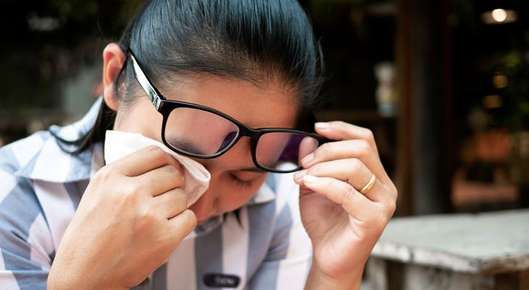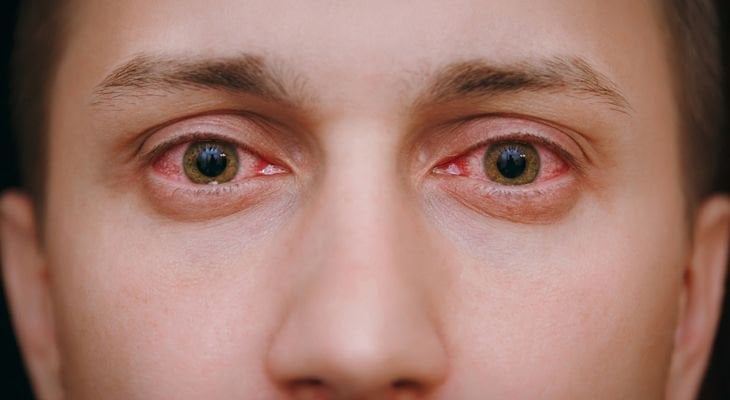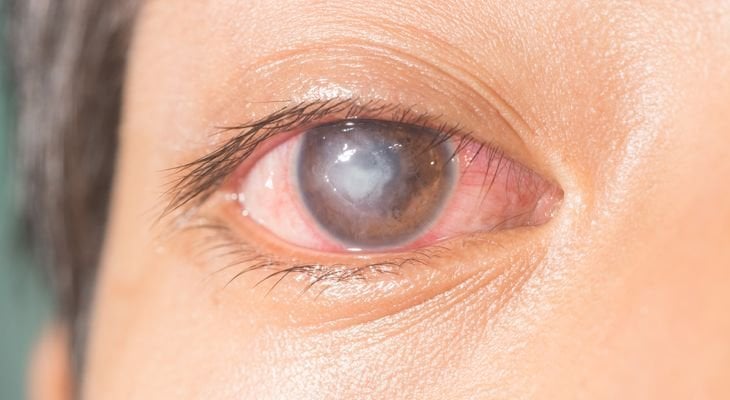Post-Concussion Syndrome & Vision Therapy Solutions
Concussion symptoms lingering? Vision therapy restores clarity, tackling headaches, dizziness, and double vision. Discover proven treatments for post-concussion recovery.
You’ve likely come across stories about professional athletes struggling with post-concussion syndrome. Many developed symptoms after repeated head injuries during their careers. However, even a single concussion can lead to lasting issues like headaches, dizziness, and vision problems. The good news? Vision therapy provides an effective solution to alleviate these symptoms and restore normal function.
What is Post-Concussion Syndrome?
A concussion occurs when a forceful impact to the head disrupts normal brain function. This injury can damage neural pathways, including those connecting your eyes to your brain. Post-concussion syndrome (PCS) symptoms typically emerge within a week of the injury and may persist for months or years. Importantly, you don’t need to lose consciousness to develop PCS.
Common symptoms include:
- Fatigue, anxiety, and headaches
- Nausea and difficulty concentrating
- Challenges with learning or retaining information
If PCS impacts vision, you might experience:
- Blurred vision or light sensitivity
- Eye strain, trouble focusing, or slower visual processing
How Can Vision Therapy Help?
Vision therapists are optometrists specially trained to address challenges in how your brain and eyes work together. Through personalized vision therapy, they improve eye coordination, movement, and reaction time using evidence-based tools like:
- Specialized lenses, filters, and prisms
- Interactive computer programs and therapeutic games
- Custom exercises to strengthen visual processing
Why It Works for Post-Concussion Syndrome
Vision therapy is highly effective for concussion-related vision issues. For example, a study in Optometry and Vision Science found that 85% of concussion patients with convergence insufficiency (where the eyes struggle to focus on nearby objects) saw significant improvement after therapy.
Addressing Double Vision
Double vision—a common post-concussion complaint—can disrupt daily tasks like reading, walking, or even pouring a drink. It may also trigger dizziness and balance issues. Vision therapists combat this with techniques such as:
- Prism lenses to realign images
- Eye-tracking games to retrain brain-eye coordination
- Exercises to enhance focus and perception
Practical Support During Recovery
Beyond therapy, vision specialists offer actionable tips to ease concussion recovery. For instance, if reading becomes challenging for a child post-concussion, they might recommend:
- Large-print books or audiobooks for school
- Adjusting screen settings to reduce eye strain
- Frequent breaks during visual tasks
How Do Vision Therapists Diagnose Problems?
If you have trouble with your vision after a concussion or experience other symptoms that may be related to your vision, such as dizziness, nausea and balance issues, it’s a good idea to visit a vision therapist. During your appointment, you’ll take several tests designed to evaluate your peripheral vision, eye movements and focusing ability, eye teaming, memory, visual processing speed, and other important functions. If a problem is detected, your vision therapist will design a treatment plan to address your vision issues.
Have you or a friend or family member developed vision problems after experiencing a concussion? Call us to find out how we can help you improve your vision.
Early Signs of Post-Concussion Syndrome to Watch For
Post-concussion syndrome (PCS) often begins with subtle symptoms that are easy to overlook. Recognizing these early warning signs can speed diagnosis and improve recovery outcomes.
Common Overlooked Symptoms:
-
Cognitive changes: Irritability, brain fog, or trouble recalling recent events.
-
Physical discomfort: Mild but persistent headaches, dizziness when standing, or disrupted sleep patterns.
-
Emotional shifts: Unexplained anxiety, mood swings, or heightened sensitivity to noise.
Vision-Related Red Flags:
-
Light sensitivity: Discomfort in brightly lit environments or while using screens.
-
Eye strain: Fatigue after reading, even for short periods.
-
Tracking issues: Difficulty following moving objects (e.g., a ball in motion).
When to Seek Help:
Consult a healthcare provider if symptoms persist beyond 7–10 days or interfere with daily tasks like work or driving. Early intervention with a vision therapist or neurologist can prevent long-term complications.
Preventing Long-Term Vision Issues After a Concussion
Proactive care after a concussion is critical to avoid chronic vision problems. Follow these evidence-backed strategies to protect your eye health and brain function.
Immediate Post-Injury Steps:
- Rest: Avoid screens, reading, and bright lights for 24–48 hours to reduce visual stress.
- Gradual activity return: Slowly reintroduce tasks requiring focus (e.g., computer work) over days or weeks.
Long-Term Prevention Tips:
- Address vision issues early: Untreated problems like convergence insufficiency can worsen balance, coordination, and cognitive function over time.
- Schedule follow-ups: Regular check-ins with a vision therapist ensure treatments like prism lenses or eye-tracking exercises stay effective.
- Monitor progress: Keep a symptom journal to track improvements or setbacks in headaches, dizziness, or focus.
Sources:
The Concussion Project: home page
Brainline: Vision Issues After Brain Injury
Clinical Pediatrics: Vision Diagnoses Are Common After Concussion in Adolescents, 3/16
Optometry and Vision Science: Vision Therapy for Post-Concussion Vision Disorders, 1/17
FAQs
-
What is post-concussion syndrome (PCS)?
Post-concussion syndrome (PCS) involves persistent symptoms like headaches, dizziness, and vision problems lasting weeks to years after a concussion. It can develop even without losing consciousness during the injury.
-
How does a concussion affect vision?
-
Can vision therapy help years after a concussion?
-
What are early signs of post-concussion syndrome?
-
How long does vision therapy take to work?
-
Will insurance cover vision therapy for PCS?
-
Why does double vision occur after a concussion?
-
Who treats post-concussion vision problems?
-
What methods do vision therapists use?
-
Can vision therapy help with reading difficulties after a concussion?
-
Is vision therapy covered by insurance for concussion treatment?
-
What should I expect during a vision therapy session for concussion?
-
Can vision therapy improve balance and dizziness after a concussion?
-
When should I seek vision therapy after a concussion?



